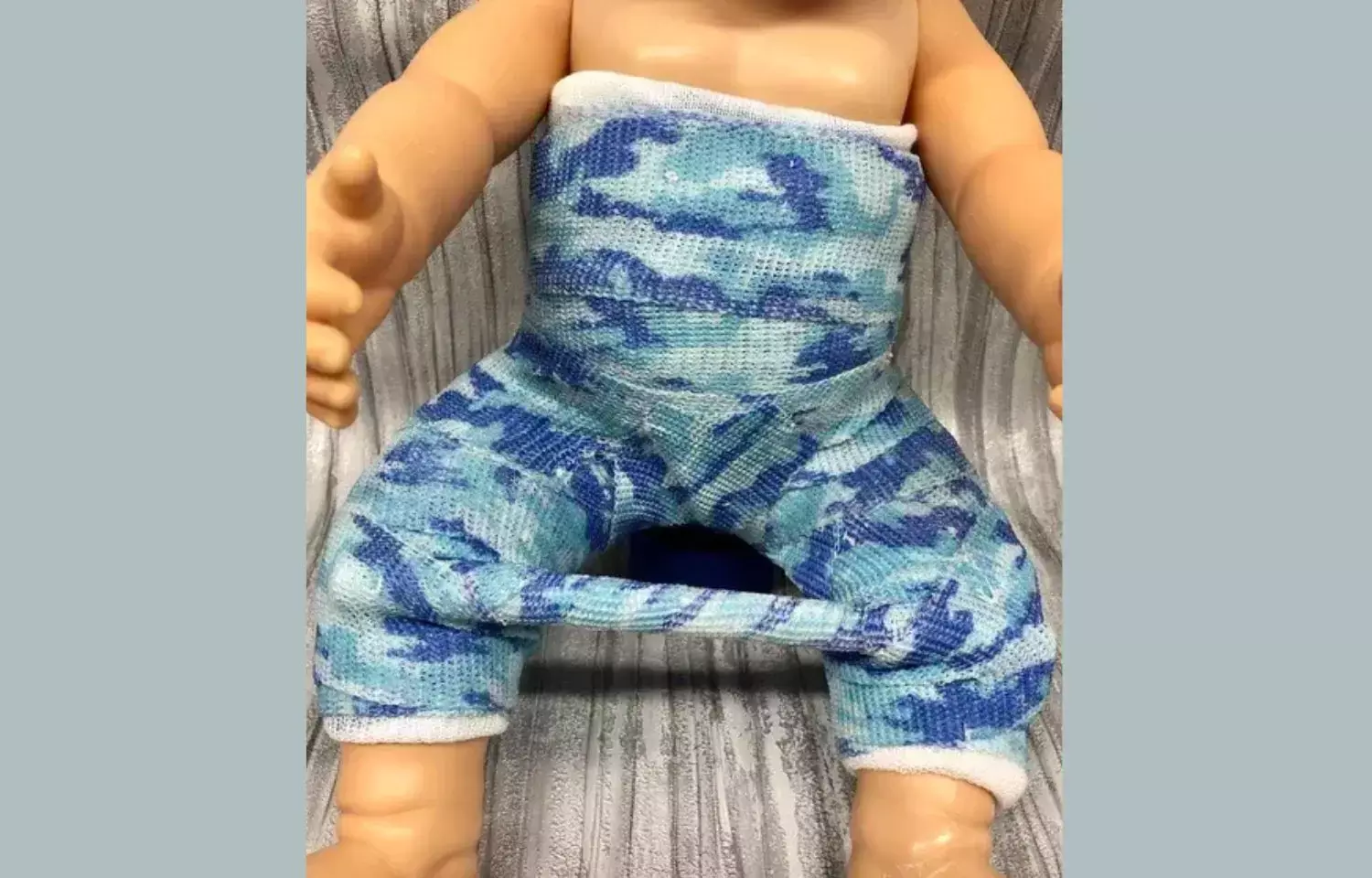- Home
- Medical news & Guidelines
- Anesthesiology
- Cardiology and CTVS
- Critical Care
- Dentistry
- Dermatology
- Diabetes and Endocrinology
- ENT
- Gastroenterology
- Medicine
- Nephrology
- Neurology
- Obstretics-Gynaecology
- Oncology
- Ophthalmology
- Orthopaedics
- Pediatrics-Neonatology
- Psychiatry
- Pulmonology
- Radiology
- Surgery
- Urology
- Laboratory Medicine
- Diet
- Nursing
- Paramedical
- Physiotherapy
- Health news
- Fact Check
- Bone Health Fact Check
- Brain Health Fact Check
- Cancer Related Fact Check
- Child Care Fact Check
- Dental and oral health fact check
- Diabetes and metabolic health fact check
- Diet and Nutrition Fact Check
- Eye and ENT Care Fact Check
- Fitness fact check
- Gut health fact check
- Heart health fact check
- Kidney health fact check
- Medical education fact check
- Men's health fact check
- Respiratory fact check
- Skin and hair care fact check
- Vaccine and Immunization fact check
- Women's health fact check
- AYUSH
- State News
- Andaman and Nicobar Islands
- Andhra Pradesh
- Arunachal Pradesh
- Assam
- Bihar
- Chandigarh
- Chattisgarh
- Dadra and Nagar Haveli
- Daman and Diu
- Delhi
- Goa
- Gujarat
- Haryana
- Himachal Pradesh
- Jammu & Kashmir
- Jharkhand
- Karnataka
- Kerala
- Ladakh
- Lakshadweep
- Madhya Pradesh
- Maharashtra
- Manipur
- Meghalaya
- Mizoram
- Nagaland
- Odisha
- Puducherry
- Punjab
- Rajasthan
- Sikkim
- Tamil Nadu
- Telangana
- Tripura
- Uttar Pradesh
- Uttrakhand
- West Bengal
- Medical Education
- Industry
Hip Spica Stroller an innovative device that enhances post spica care: study

Ahmedabad, Gujarat, India: Care of the child after hip-spica application is the most challenging issue faced by parents. Reduced mobility and recumbency can cause respiratory problems, skin irritation and discomfort for the child. Parents need to lift the child in a spica to make him upright and to mobilize. To improve the comfort of the family in post spica care, Shalin Shah et al have designed a 'Hip Spica Stroller' which is low profile, comfortable, easy to construct and relatively inexpensive. The study published in Indian Journal of Orthopaedics discusses the early experience with this hip-spica stroller use.
A sturdy, relatively lightweight and portable stroller was designed in collaboration with local mechanical engineering team. The stroller allowed safe upright placement of the child with spica and their easy mobility. From the second post-operative day, children were mobilised in the stroller.
The authors looked for development of any complications related to the stroller such as spica breakage, skin irritation or excoriation development. Parents were also inquired about their feedback and satisfaction with the device upon spica removal.
The observations in the study were;
• The spica stroller was used in nine patients after Developmental Dysplasia Hip (DDH) treatment and in eight patients post shaft femur fracture treatment.
• None of the patients experienced any stroller-related complications.
• All the patients maintained the joint reduction and the fractured bone fragment alignment.
• There were no cases where a cast wedging was required for correction of angular deformities at the fracture site or a repeat spica application had to be carried out for post-operative dislocation of DDH.
• High satisfaction rates were reported by parents.
• There were no reports of accidental breakage of stroller component.
• None amongst the 17 children developed any skin irritation or excoriation related to the stroller device.
The authors concluded that - Spica stroller is an innovative device which can be kept as a loan-to-use for hip-spica patients at specialist Paediatric Orthopaedic hospitals. It has proved to be a safe device for hip-spica children mobilization and has also found to have a good acceptability amongst parents.
Further reading:
Hip Spica Stroller: A Technical Note
Shalin Shah, Chinmay Sangole, Maulin Shah
Indian Journal of Orthopaedics (2022) 56:634–638
https://doi.org/10.1007/s43465-021-00568-2
MBBS, Dip. Ortho, DNB ortho, MNAMS
Dr Supreeth D R (MBBS, Dip. Ortho, DNB ortho, MNAMS) is a practicing orthopedician with interest in medical research and publishing articles. He completed MBBS from mysore medical college, dip ortho from Trivandrum medical college and sec. DNB from Manipal Hospital, Bengaluru. He has expirence of 7years in the field of orthopedics. He has presented scientific papers & posters in various state, national and international conferences. His interest in writing articles lead the way to join medical dialogues. He can be contacted at editorial@medicaldialogues.in.
Dr Kamal Kant Kohli-MBBS, DTCD- a chest specialist with more than 30 years of practice and a flair for writing clinical articles, Dr Kamal Kant Kohli joined Medical Dialogues as a Chief Editor of Medical News. Besides writing articles, as an editor, he proofreads and verifies all the medical content published on Medical Dialogues including those coming from journals, studies,medical conferences,guidelines etc. Email: drkohli@medicaldialogues.in. Contact no. 011-43720751


